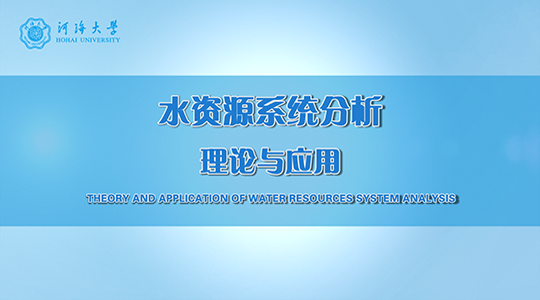
Applied Research Method and Consultancy课程:前往报名学习
Get to grips with how to conduct qualitative research from the very first stage of developing a workable research question to the conclusive stage of reporting the findings. Operable tips on the writing process of a thesis are also recommended. Welcome to this MOOC developed by Nankai University!
开设学校:南开大学;学科:管理学、
Get to grips with how to conduct qualitative research from the very first stage of developing a workable research question to the conclusive stage of reporting the findings. Operable tips on the writing process of a thesis are also recommended. Welcome to this MOOC developed by Nankai University!
-1.1 What Is Qualitative Approach?
--1.1.1 What is qualitative approach?
-1.2 Features of Qualitative Research
--1.2.1 Features of qualitative research
-1.3 Advantage and Disadvantage of Qualitative Research
--1.3.1 Advantage and disadvantage of qualitative research
-1.4 FAQs about Qualitative Approach
--1.4.1 FAQs about qualitative approach
-Chapter 1 Quiz
-2.1 Roles of Research Questions
--2.1.1 Roles of research questions(1)
--2.1.2 Roles of research questions(2)
-2.2 Developing Qualitative Research Questions
--2.2.1 Developing qualitative research questions(1)
--2.2.2 Developing qualitative research questions(2)
-2.3 Writing Qualitative Research Questions
--2.3.1 Writing qualitative research questions
-2.4 Making Research Questions Work
--2.4.1 Making research questions work
-Chapter 2 Quiz
-3.1 Delphi Concept Involved
--3.1.1 Delphi concept involved
-3.2 Example of Using the Delphi Method
--3.2.1 Example of using the Delphi method
-Chapter 3 Quiz
-4.1 What is Focus Groups?
-4.2 Four Key Aspects of Focus Group
--4.2.1 Four key aspects of focus group (1)
--4.2.2 Four key aspects of focus group (2)
-4.3 Advantages of Conducting Focus Group
--4.3.1 Advantages of conducting focus group
-4.4 Major Capabilities and Limitations of Focus Group
--4.4.1 Major capabilities and limitations of focus group
-Chapter 4 Quiz
-5.1 In-depth interviews
-5.2 Steps of Qualitative Data Analysis
--5.2.1 Steps of qualitative data analysis
-5.3 Trustworthiness
-5.4 Reporting the Findings
--5.4.1 Reporting the findings
-Chapter 5 Quiz
-6.1 Body of Thesis: Writing Steps
--6.1.1 Body of thesis: Writing steps
-6.2 Tips on Writing Process
--6.2.1 Tips on writing process
-Chapter 6 Quiz
-Final test
张俊娇,南开大学旅游与服务学院助理研究员,日本北海道大学传媒学博士。主要研究方向为消费者心理及行为、旅游社交媒体、旅游教育创新,以旅游者信息处理心理及行为,目的地社会化媒体营销,及旅游MOOCs学习行为三个领域为研究核心。
何会文,男,管理学博士后,副教授,南开大学会展管理系创始人。主讲过《会展概论》、《会议管理》、《会展英语》、《战略管理》等课程,南开大学捷成奖教金获得者,南开大学宏泰奖教金获得者。他是一位:⑴主持会展领域首项国家级课题(国家社科)的领军型学者;⑵将会展论文发表在国内外顶尖期刊(International Journal of Hospitality Management,南开管理评论)的开拓型学者;⑶连续3年在《旅游学刊》发表论文的高产学者。同时,他还曾经是一位在2003年就享受年薪制的高级职业经理人和资本运作专家,是一位受过天津市政府表彰的咨政专家,是一位曾帮助某牙膏企业在3年时间内从市场占有率第9跃升至第4;帮助某建设企业3年内产值从9亿元跃升到50亿元的战略谋划家。
阮博文教授现任香港理工大学(理大)专业及持续教育学院院长、理大管理及市场学系教授。阮教授于美国纽约州立大学水牛城分校取得分子生物学学士及工商管理硕士学位,其后于英国伯明罕大学获得卫生经济学博士学位。 阮教授的研究主要集中于公共政策制定与评价及医疗服务管理。他是Public Administration and Policy期刊的副总编辑,以及Asia Pacific Journal of Health Management期刊的编委成员。阮教授亦曾为香港特区政府及智经基金研究中心担任公共政策研究顾问,研究项目包括「西九文化区」、「可持续建筑环境」、「资助置业」、「香港的医疗集团」和「医疗制度改革」。



